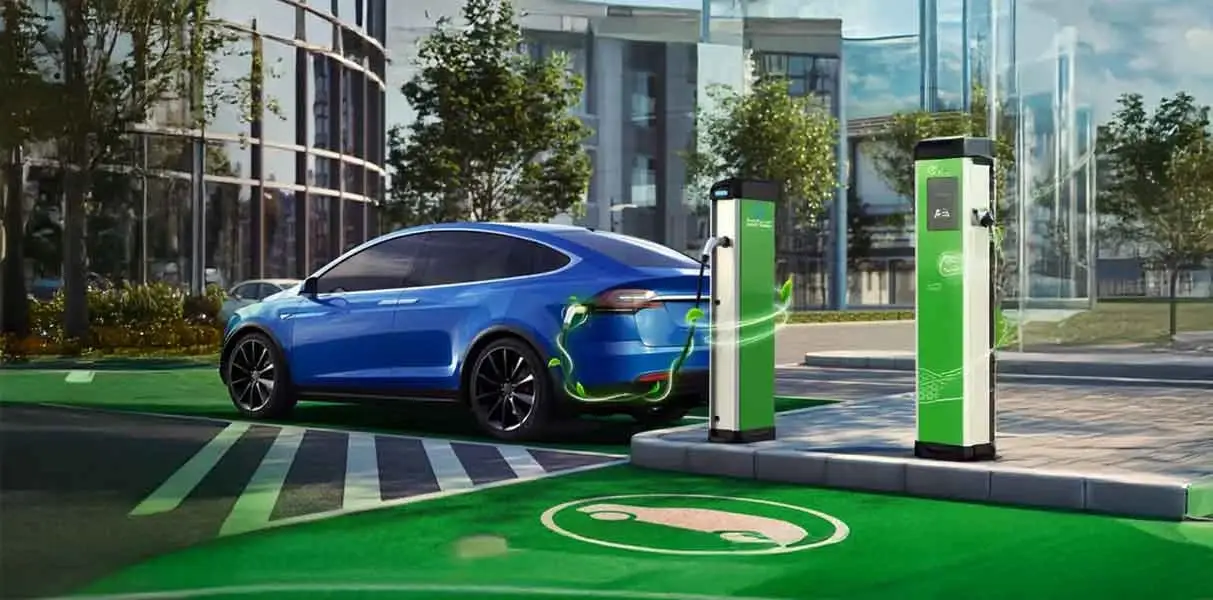The United Arab Emirates (UAE) is making significant strides toward establishing itself as a leader in green mobility and sustainable transportation. In a major move to support the widespread adoption of electric vehicles (EVs), the UAE Ministry of Energy and Infrastructure has announced plans to install more than 500 EV charging stations across the country by the end of 2025. The initiative, spearheaded by Under-Secretary for Energy and Petroleum Affairs Sharif Al Olama, aims to create a more accessible and efficient charging network, further promoting clean transportation and reducing the nation’s carbon footprint.
Expanding EV Charging Infrastructure: A Strategic Move
With sustainability being a key pillar of the UAE’s long-term vision, the expansion of the EV charging network is an essential step in driving the adoption of electric vehicles. The government’s commitment to green energy solutions aligns with the UAE Net Zero 2050 strategic initiative, which seeks to position the country as a global leader in carbon neutrality and renewable energy innovation.
The rollout of 500 new charging stations will significantly enhance EV accessibility for residents, businesses, and tourists alike. The expansion will ensure that the UAE’s urban centers, highways, and key travel hubs are well-equipped with modern charging infrastructure, supporting the growing number of EV owners and reinforcing the nation’s commitment to a sustainable future.
Impact on the Travel and Tourism Industry
As the UAE continues to attract millions of tourists annually, the introduction of additional EV charging stations is expected to benefit the travel industry in multiple ways. With an increasing number of travelers prioritizing sustainable tourism options, the availability of widespread EV infrastructure will further enhance the UAE’s reputation as a forward-thinking, eco-conscious destination.
From luxury hotels and shopping malls to major tourist attractions and desert resorts, EV charging stations will be strategically placed to cater to both local and international visitors. This expansion aligns with the growing trend of green tourism, where sustainability-driven travelers seek eco-friendly destinations with robust infrastructure supporting clean mobility solutions.
Sustainability and UAE’s Green Mobility Vision
The UAE has been a pioneer in implementing sustainability initiatives across various sectors, and the transportation industry is no exception. The government has been actively encouraging the adoption of EVs by providing incentives such as free charging at certain public stations, reduced vehicle registration fees, and exemptions from road tolls in select emirates.
Moreover, Dubai’s Roads and Transport Authority (RTA) has been playing a significant role in supporting EV growth by integrating electric and hybrid buses, taxis, and ride-hailing services into the city’s transportation system. The addition of 500 more charging stations will further accelerate this momentum, ensuring that electric mobility remains a viable and convenient option for residents and visitors alike.
EV Market Growth in the UAE
The UAE’s electric vehicle market has been experiencing rapid growth, with increasing consumer interest and an expanding range of available EV models. Automakers such as Tesla, BMW, Audi, and Mercedes-Benz have been actively introducing their latest electric models into the UAE market, catering to a growing demand for sustainable mobility solutions.
Government-backed incentives and corporate sustainability initiatives have also contributed to a surge in EV adoption, with fleet operators, rental companies, and ride-hailing services investing in electric vehicle fleets to align with national sustainability goals. As the charging network expands, industry experts anticipate an even greater shift towards EVs in the coming years.
Smart Cities and the Role of EV Charging Stations
As part of its broader smart city initiatives, the UAE is integrating intelligent infrastructure to enhance urban mobility and sustainability. Smart charging stations equipped with fast-charging capabilities, real-time monitoring, and digital payment solutions are becoming more prevalent, offering seamless and efficient EV charging experiences.
Cities such as Dubai and Abu Dhabi are leading the way in implementing innovative solutions to ensure that the transition to electric mobility is smooth and convenient. AI-powered grid management, predictive maintenance for charging stations, and renewable energy-powered chargers are just a few of the advancements being introduced to support the UAE’s green mobility agenda.
Challenges and Future Considerations
While the expansion of the EV charging network is a positive step, challenges such as grid capacity management, charging station accessibility, and consumer awareness must be addressed to ensure a successful transition. Industry experts emphasize the need for continued investment in renewable energy sources, battery recycling programs, and educational campaigns to encourage further EV adoption.
Additionally, as the UAE continues to develop its green mobility ecosystem, collaboration between government agencies, private sector stakeholders, and global technology providers will be essential in driving innovation and ensuring that EV infrastructure keeps pace with the country’s ambitious sustainability targets.
A Transformational Step for the UAE
The UAE’s decision to install over 500 EV charging stations by 2025 marks a significant milestone in the country’s commitment to sustainable transportation and clean energy adoption. With a focus on enhancing accessibility, supporting tourism, and driving economic growth through green mobility initiatives, this expansion is set to have a lasting impact on the nation’s transport landscape.
As the global shift towards electrification gains momentum, the UAE continues to position itself as a pioneer in sustainable travel, smart city development, and future-ready mobility solutions. Travellers, residents, and businesses can look forward to a more connected, efficient, and environmentally friendly transportation network as the country moves closer to realising its Net Zero 2050 vision.

